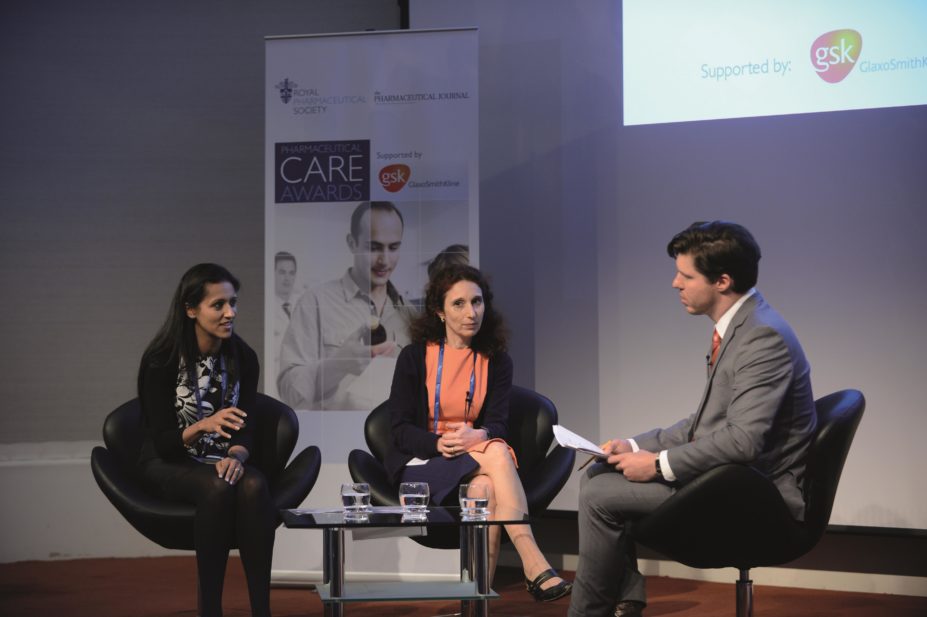
Simon Wright / The Pharmaceutical Journal
A two-year project based in Harrow, North London, which helped care home residents and staff to improve medicines use, has saved up to £75,794 by reducing preventable hospital admissions and emergency callouts. The project team, led by elderly care GP Chris Jenner, secured a spot in the final of the Pharmaceutical Care Awards 2015. The event, jointly organised by the Royal Pharmaceutical Society and The Pharmaceutical Journal and supported by GlaxoSmithKline, was held at the Royal Society in London on 18 June 2015.
Consultant pharmacist Nina Barnett, who represented the team alongside specialist pharmacist Hiral Khoda Vyas at the awards, explained that the project was initiated because of the high number of local care home residents who were being admitted to hospital. “Part of the reason for this was that care home staff did not feel equipped to manage… the deterioration of health in care homes,” she added.
The multidisciplinary team, which consisted of a consultant geriatrician, a community nurse, a pharmacist and a mental health nurse specialist, worked across 70 care homes, helping to identify particular homes and patients who were at high risk. Patients were identified using a specially developed risk stratification tool. Medicines reviews were performed for these patients and a care plan was developed for each individual.
“Over six months, we did 229 reviews and we produced about 80 care plans,” Barnett explained. “What we were aiming to do was encourage the GPs to create these anticipatory care plans by giving them the information they needed from the patients, carers, relatives and staff.” She added that these care plans would then be embedded into practice at the care home so that staff did not have to call emergency services if the patient had further problems. “We weren’t going in, fixing everything and then leaving,” she said.
The project was commissioned by Harrow Clinical Commissioning Group with a budget of £208,242, and made an estimated annual net saving of £75,794.
You may also be interested in
Long service of members

Membership fees 2022
